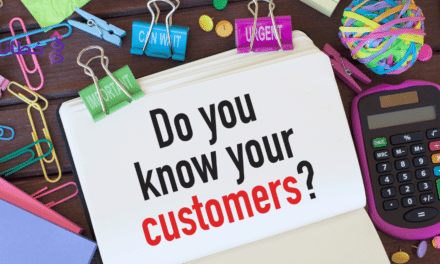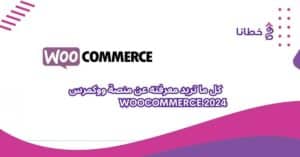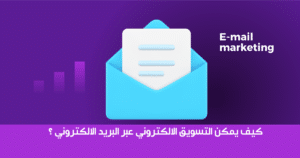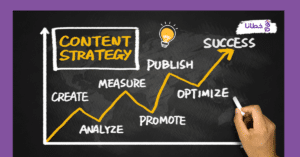table of contents
Digital marketing has become an essential tool in any company’s or project’s marketing strategy. In light of rapid technological advancements and changing consumer behavior, it has become imperative to launch marketing campaigns across digital channels to reach the target audience. In this article, we’ll discuss the essential steps for successfully launching digital marketing.
How do I start e-marketing? Top tips for getting started with e-marketing.
1- Determine your marketing goals
Before starting any marketing efforts, it’s important to define your marketing goals. Do you want to increase the number of visitors to your website? Increase sales? Build a mailing list subscriber base? Clearly defining your goals will help you choose the right marketing strategies and tactics.
2- Create an attractive and easy-to-use website.
A website is the cornerstone of any online marketing effort. Ensure your site has an attractive, user-friendly design and provides valuable content to visitors. Use search engine optimization (SEO) techniques to improve your site’s visibility in search results.
3- Creating effective social channels
In the age of social media, it’s essential to be present on the most popular social platforms used by your target audience. Create accounts on relevant platforms like Facebook, Instagram, and Twitter, and create valuable and engaging content to attract followers.
4- Develop a strong content strategy
Content is king in the world of digital marketing. Create valuable and relevant content for your audience, such as articles, videos, and podcasts. Use search engine optimization techniques to improve your content’s visibility in search results.
5- Benefit from email marketing
Email is a powerful online marketing tool. Build a mailing list of subscribers interested in your products or services. Send regular emails with special offers and updates on products and services.
6- Measuring and analyzing campaign performance
Don’t forget to monitor and analyze the performance of your online marketing campaigns. Use online analytics tools like Google Analytics to understand your website’s traffic sources, conversion rates, and overall campaign performance.
I start e-marketing, how do I learn e-marketing?
To learn e-marketing, you can follow these steps:
1- Self-learning online:
- Articles and Blogs: Read specialized articles on our blog, Khutana Blog. You will find articles through which you can learn more about the field of electronic marketing, search engine optimization, and learning e-commerce for beginners.
- Free Courses: There are many courses available for free on platforms like Coursera, edX, and Google Digital Garage.
2- Paid courses and certificates:
- Professional Certifications: Obtain accredited certifications such as Google Analytics Certification and HubSpot Content Marketing Certification.
- Advanced courses: such as those offered by Udemy and LinkedIn Learning.
3- Participation in workshops and seminars:
- Seminars and Conferences: Participate in seminars and conferences related to digital marketing to expand your knowledge and network.
- Local workshops: Attend workshops organized by universities or training centers.
4- Practical experience:
- Internship or Volunteer: Join a marketing team at a company or non-profit organization to gain practical experience.
- Create a blog or website: Work on your own project to apply what you’ve learned.
Books on e-marketing
5- Continuous reading:
- Digital Marketing Books: “Digital Marketing for Dummies” and “Jab, Jab, Jab, Right Hook” by Gary Vaynerchuk.
- Magazines and Reports: Follow specialized magazines Marketing Week eMarketer.
6- Continuous follow-up and updating:
- Continuous learning: Continue learning and developing your skills by enrolling in new courses and reading recent research and studies.
- Stay informed: Follow updates and new trends in digital marketing through news sites and blogs.
By following these steps, you can build a strong foundation in digital marketing and continually develop your skills to achieve success in this field.
E-marketing work from home, start e-marketing
To work in the field of e-marketing from home, you can follow these steps to find suitable job opportunities:
1- Preparing your CV and portfolio:
- Portfolio: Create a portfolio that showcases your past projects, including case studies and results you’ve achieved.
- Updated CV: Make sure your CV is up-to-date and highlights your digital marketing skills and experience.
2- Search for job opportunities online:
- Freelancing Sites: Join platforms like Khamsat, Mostaqil, Upwork, Freelancer, and Fiverr. These platforms allow you to offer your services to clients around the world.
- Remote Job Sites: Use sites like Remote.co, We Work Remotely, and FlexJobs to search for remote digital marketing jobs.
- LinkedIn: Search for digital marketing jobs on LinkedIn and connect with companies looking for remote employees.
3- Building a professional network:
- Participate in forums: Participate in forums like Reddit (e.g. r/marketing) and share experiences with others.
- Facebook and LinkedIn Groups: Join groups specialized in digital marketing and participate in discussions.
4- Offer your services as a freelancer and start online marketing:
- Social Media Management: Managing social media accounts for small businesses.
- Search Engine Optimization (SEO): Providing search engine optimization services for websites.
- Email Marketing: Design and manage email campaigns.
- Content Writing: Offer article and blog writing services to businesses.
5- Marketing yourself:
- Social Media: Use your social media accounts to promote your services.
- Personal Blog: Create a blog that showcases your digital marketing skills and knowledge.
6. Continuous learning:
- Free Courses: Take advantage of free online courses to continually improve your skills.
- Read articles and blogs: Stay up-to-date with the latest trends and tools in digital marketing.
Follow our blog to keep up with everything related to e-marketing.
7. Time management and organization:
- Management tools: Use project management tools like Trello and Asana to organize your tasks and track progress.
- Flexible schedule: Set regular work hours and stick to them to achieve work-life balance.
8- Providing consulting services:
- Content Marketing: Providing advice to companies on content marketing strategies.
- Data Analysis: Providing data analysis services and making recommendations to improve marketing performance.
With these steps, you can find work opportunities in digital marketing from home and build a successful career in this field.
E-marketing departments
Digital marketing departments include several integrated aspects aimed at achieving the best results. Here are some of the main departments:
1- Market analysis:
- Market and competitor research.
- Target group analysis.
2- Content marketing:
- Create visual content such as videos and infographics.
- Writing articles and blogs.
3- Social media marketing:
- Managing accounts on platforms such as Facebook, Twitter, and Instagram.
- Interact with your audience and post interactive content.
4- Email marketing:
- Email campaign design.
- Subscriber response analysis.
5- Search Engine Optimization (SEO):
- Optimize website pages to improve search engine rankings.
- Keyword research.
Khutana E-Marketing and Search Engine Optimization Services is your partner in the journey of success in the world of marketing and e-commerce.
6- Pay-per-click (PPC) advertising:
- Analyze campaign performance and adjust to achieve the best results.
- Managing Google AdWords and Facebook Ads campaigns.
7- Influencer Marketing:
- Collaborate with influencers to promote your brand.
- Measuring the impact of influencer campaigns.
8- Data analysis:
- Preparing reports and analyses to make informed decisions.
- Collect and analyze data related to marketing performance.
9- E-commerce:
- Improving user experience in online stores.
- Managing online sales platforms.
10- Digital Public Relations:
- Building relationships with media and bloggers.
- Online reputation management.
Each of these departments requires specific skills and strategies to ensure the success of marketing campaigns and achieve the company’s goals.
Stages of electronic marketing
The stages of e-marketing include several steps that must be followed to ensure the success of the marketing campaign and achieve the desired goals. Here are the main stages:
1- Research and analysis:
- Audience analysis: identifying the target group, their needs, and preferences.
- Market analysis: Understanding the target market and studying competitors.
2- Setting goals:
- Use specific criteria: such as SMART goals that are specific, measurable, achievable, relevant, and time-bound.
- Set specific goals: such as increasing brand awareness, increasing sales, or improving customer engagement.
3- Strategy development:
- Choosing the right channels: Determine which digital channels to use (e.g., social media, email, blogs, search engines).
- Identify key messages: Develop marketing messages that target your audience and meet their needs.
4- Implementing the campaign:
- Channel Management: Publish content to selected channels and manage interactions with audiences.
- Content Production: Creating visual and textual content to be published.
5- Search Engine Optimization (SEO):
- Optimize Site Structure: Improve site structure and user experience to increase the time visitors spend on the site.
- Content Optimization: Use appropriate keywords and optimize pages to rank higher in search results.
6- Content marketing:
- Create valuable content: Writing articles, blogs, videos, infographics that provide valuable information to your audience.
- Content promotion: Posting content across different channels to attract visitors and engagement.
7- Social media marketing:
- Paid Advertising: Use paid advertising to reach a wider audience.
- Account Management: Publish engaging and interactive content, and engage with audiences.
8- Email marketing:
- Setting up email campaigns: Designing email campaigns that target different audiences.
- Analyze results: Measure performance through open, click, and conversion rates.
9- Measurement and Analysis:
- Data collection: Use analytics tools like Google Analytics to collect data about campaign performance.
- Analyze results: Understand the extent to which the set objectives were achieved and identify strengths and weaknesses.
10- Evaluation and improvement:
- Continuous improvement: Making adjustments and improvements based on analysis to ensure improved results in the future.
- Performance Evaluation: Review the overall performance of the campaign and determine the extent to which objectives are achieved.
It’s worth noting that Khutana E-Marketing Services offers a training course on digital marketing. You can contact the Khatana Digital Marketing and SEO team now. By implementing these steps systematically and thoughtfully, you can ensure the success of your digital marketing campaign and achieve your desired goals.
What is e-marketing and what are its benefits?
Digital marketing is the use of digital technologies and the internet to promote products and services. This type of marketing encompasses a wide range of activities, including email marketing, social media marketing, search engine optimization (SEO), paid advertising (PPC), and content marketing. The primary goal is to reach a target audience, increase brand awareness, and achieve sales or other marketing objectives.
Benefits of e-marketing:
1- Reaching a wide audience:
- A specific audience can be targeted based on interests, age, gender, location, and online behavior.
- Allows access to a global audience without geographical restrictions.
2- Cost effectiveness:
- Online marketing is often less expensive than traditional marketing.
- Ability to accurately define and easily control the budget.
3- Performance measurement and data analysis:
- The effectiveness of marketing campaigns can be accurately measured using analytics tools such as Google Analytics.
- The available data allows us to understand audience behavior and improve marketing strategies based on the results.
4- Direct interaction with the audience:
- Customers can be interacted with directly and instantly through social media and email.
- Strengthen customer relationships with your brand by responding to their inquiries and comments.
5- Continuous improvement:
- Ability to adjust ads and content in real time to achieve the best results.
- Ability to test different strategies and optimize campaigns based on the results.
6- Specificity and specification:
- Increase conversion opportunities by offering offers and products that meet individual customer needs.
- Ability to deliver personalized content to each customer based on their preferences and behavior.
7- Increase brand awareness:
- Brand awareness can be enhanced by having a consistent online presence and posting engaging content.
- Reach a wider audience and increase brand awareness across different platforms.
8- Increase sales and revenues:
- Search engine optimization and paid advertising can increase traffic to your website, increasing your chances of making sales.
- Facilitate online purchases, increasing revenue.
9- Flexibility and quick adaptation:
- Strategies can be easily modified based on analysis and feedback.
- Ability to quickly adapt to market changes and customer needs.
Digital marketing provides a set of tools and strategies that enable companies to achieve their goals efficiently and effectively, making it an essential part of any modern marketing plan.
How do I learn e-marketing for free and start e-marketing?
You can learn digital marketing for free through numerous online resources. Here are some steps you can take:
1- Free online courses:
- HubSpot Academy: Offers free courses in digital marketing, content marketing, SEO, and social media.
- Coursera and edX: Some universities offer free courses in digital marketing that you can join.
- Google Digital Garage: Offers a comprehensive course on the basics of digital marketing.
2- Articles and blogs:
- HubSpot Blog: Contains articles on content marketing, social media, and email.
- Neil Patel Blog: Offers tips and strategies on various aspects of digital marketing.
- Moz Blog: A great resource for learning SEO.
3- Educational videos:
- YouTube: There are many channels specialized in digital marketing, such as Simplilearn and Neil Patel.
- TED Talks: Contains short lectures from digital marketing experts.
4- Free e-books:
- Google Analytics for Beginners: Google’s official guide to understanding the basics of web analytics.
- The Beginner’s Guide to SEO by Moz: A comprehensive guide to search engine optimization.
5- Podcast:
– **Marketing School**: A daily podcast from Neil Patel and Eric Siu offering tips and strategies on digital marketing.
– **Online Marketing Made Easy**: A podcast by Amy Porterfield focusing on digital marketing strategies and building an online business.
6. **Online groups and forums**:
– **Reddit**: Forums like r/marketing and r/SEO contain valuable discussions and resources.
– **LinkedIn Groups**: الانضمام إلى مجموعات متخصصة في التسويق الرقمي يمكن أن يكون مفيدًا للتعلم من الخبراء والممارسين في المجال.
7. **Practical experience**:
– **Create a blog or personal website**: Use what you’ve learned to create a blog or website and use digital marketing techniques to promote it.
– **Volunteer**: Work on volunteer projects with non-profit organizations or small businesses to gain practical experience.
By diversifying your learning sources and applying what you learn practically, you can build a strong knowledge of digital marketing without having to spend money.
What are the requirements I need to start e-marketing?
To start online marketing successfully, there are several basic requirements that you must have:
1- Basic knowledge of marketing:
- Knowledge of marketing strategies: such as content marketing, social media marketing, and search engine optimization.
- Understand the basic principles of marketing: such as identifying the target audience, analyzing the market, and setting marketing objectives.
2- Technical skills:
- Website and platform management: The ability to manage websites and use content management systems such as WordPress.
- Use analytics tools: such as Google Analytics to analyze data and understand user behavior.
3- Creative abilities:
- Creating engaging content: skills in writing, graphic design, and video production.
- Innovation and renewal: the ability to come up with new ideas and distinctive content that attracts audiences.
4- Tools and programs:
- Email tools: such as Mailchimp and Constant Contact to set up and manage email campaigns.
- SEO tools: such as Ahrefs and SEMrush for keyword analysis and website optimization.
- Social media management tools: such as Hootsuite and Buffer manage and schedule posts.
5- Clear marketing strategy:
- Develop a marketing plan: define goals, target groups, and channels used.
- Schedule: Set dates for publishing content and launching marketing campaigns.
6- Allocated budget:
- Set a budget: Allocate a specific budget for paid advertising, content production, and marketing tools.
- Cost Management: Monitor spending and adjust budget based on results.
7- Continuous learning:
- Benefit from educational resources: enroll in training courses and read specialized books and articles.
- Keep up to date: Stay informed of the latest developments in digital marketing.
8- Network of relationships:
- Collaborate with professionals: Work with designers, content writers, and marketing campaign managers.
- Building relationships with influencers: Collaborating with influencers in the field to promote the brand.
By providing these ingredients, you can start online marketing effectively and achieve tangible results.
How to work in the field of electronic marketing from home
Working in digital marketing from home can be rewarding and flexible. Here are steps to get started in this field from home:
1- Developing skills and knowledge:
- Specialize in a specific field: Choose a specific field such as search engine optimization (SEO), email marketing, or social media marketing, and focus on developing your skills in it.
- Learn the basics: Invest time in studying digital marketing through free courses like Google Digital Garage and HubSpot Academy.
2- Creating a strong digital presence:
- Professional Profiles: Maintain professional profiles on LinkedIn and other specialized social media platforms.
- Blog or personal website: Create a blog or personal website to showcase your skills and experience.
3- Building a business portfolio:
- Volunteer work: Offer your volunteer services to nonprofit organizations or small projects to gain practical experience and add work to your portfolio.
- Personal Projects: Work on personal projects to showcase your skills.
4- Communication and networking:
- Participate in forums and groups: Join online groups and forums specialized in digital marketing.
- Attend virtual seminars: Take advantage of webinars and virtual conferences to expand your knowledge and network.
5- Searching for remote job opportunities:
- Freelancing Sites: Join platforms like Upwork, Freelancer, and Fiverr to offer your services and connect with potential clients.
- Job sites: Use sites like Remote.co and We Work Remotely to search for remote digital marketing jobs.
6- Providing your services as a consultant or freelancer:
- Social Media Management: Managing social media accounts for small businesses.
- Search Engine Optimization (SEO): Providing search engine optimization services for websites.
- Email Marketing: Design and manage email campaigns.
- Content Marketing: Offer article and blog writing services to businesses.
7- Continuous learning:
- Follow updates: Stay up-to-date with the latest trends and tools in digital marketing by reading specialized blogs and articles.
- Continuous development: Invest in advanced courses and professional certifications to enhance your knowledge and skills.
8- Time management and organization:
- Management tools: Use project management tools like Trello and Asana to organize your tasks and track progress.
- Flexible schedule: Set regular work hours and stick to them to achieve work-life balance.
9- Building a good reputation:
- Ratings and Reviews: Make sure to get positive customer ratings and reviews to boost your credibility.
- Professionalism: Treat customers with skill and professionalism to build a good reputation.
By following these steps, you can start and build a successful career in digital marketing from home. Starting digital marketing takes time and effort, but with good planning and organized execution, you can build a strong digital presence for your brand, increase sales, and engage with customers. Start by defining your goals and building a solid foundation on your website and social channels, then develop an effective content strategy and leverage email marketing. Don’t hesitate to continually measure and analyze the performance of your campaigns for continuous improvement.
Questions about the article How to Start Successful Online Marketing in 2025
How do I become a successful online marketer?
Promote and position your brand.
Get training in digital marketing.
Communicate and collaborate.
Define your goals and scope.
Create a brand.
Create a portfolio.
Final words.
Understand the basics.
What is the best skill for digital marketing?
Email marketing.
Design thinking and planning.
Be tech savvy.
Social media.
Show off your extraordinary skills!
Data and analytics.
Content marketing.
Be persuasive.
What is SEO in marketing?
SEO—short for search engine optimization—aims to help search engines understand your content, help users find your site, and decide whether they should visit your site through a search engine.
Can I learn SEO for free?
One of the great things about the SEO community is how much we (usually) share knowledge with each other. Thanks to the hard work of many SEO experts, you can learn how to optimize for search engines for free. All you need are solid resources written or created by SEO experts.
We respect and value your time... half an hour to grow your project
































